Farmer's markets and summertime go hand-in-hand. Shopping at farmers markets means supporting local growers (most of the time) and buying local produce - this means it’s usually fresher food, with lower transportation costs.
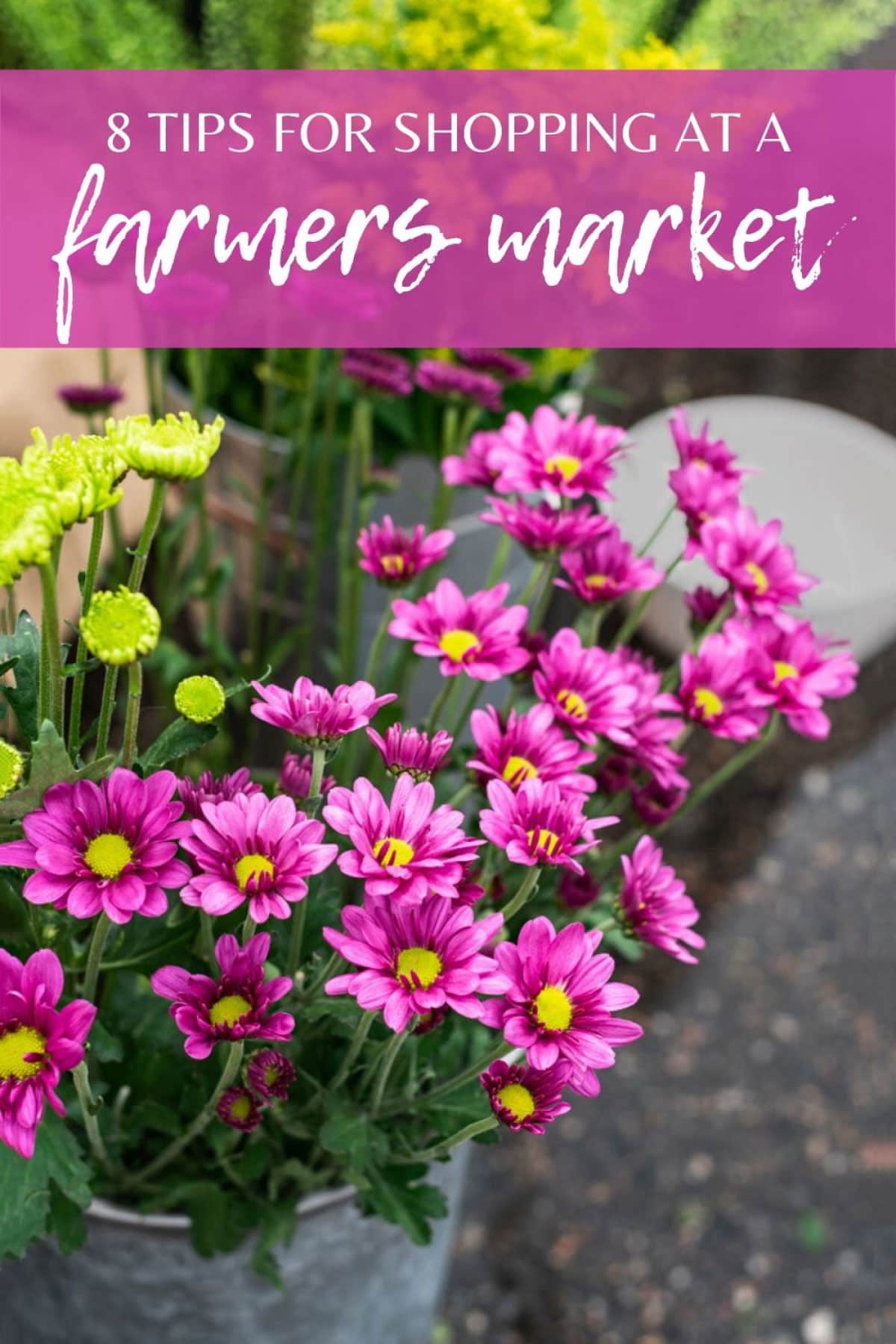
Hi there! Below you’ll find affiliate links to great products that we enjoy using in our own kitchen. As an Amazon Associate, I earn from qualifying purchases.
Though if you’re a farmers market newbie, you might have some questions like can I haggle? Or what is the best approach to shopping at the market?
So we thought we'd put together a few tips to help you get the most out of your local farmer's market.
Jump to:
Bring the right supplies/tools
Make sure you have your reusable grocery bags (affiliate) and bulk bags (affiliate). These will help you avoid unnecessary plastics.
When we're not using them at the market, we always keep these bags handy in the car. You never know when you'll need them and they’re great for more than just groceries.
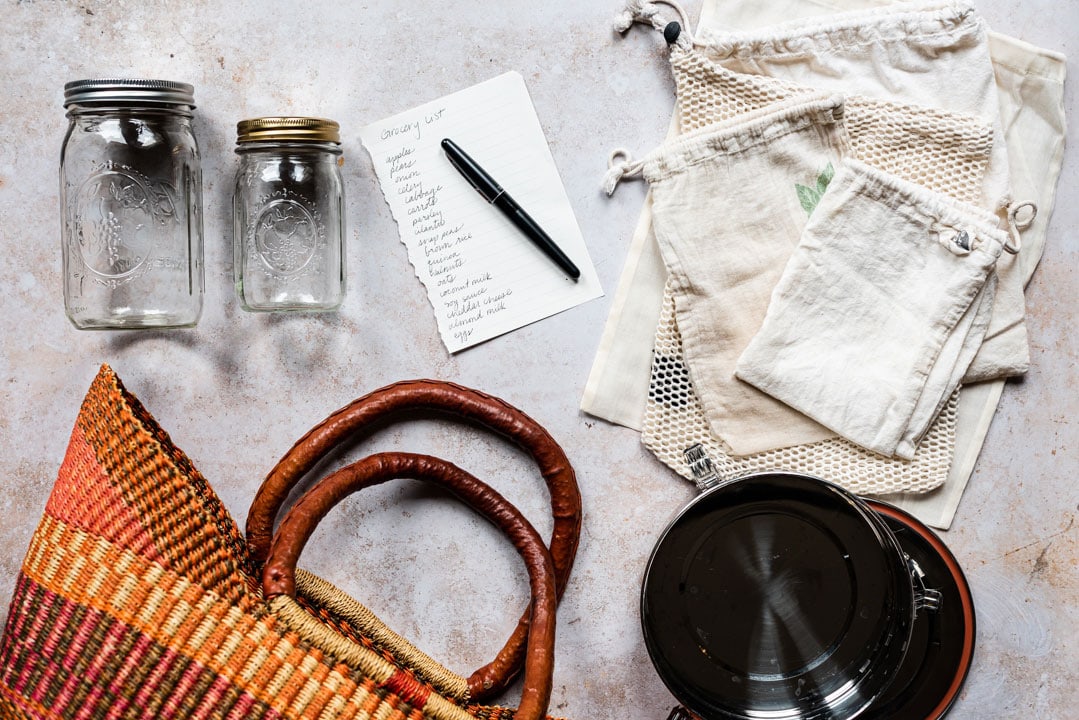
Pro-tip: if I purchase something in a plastic clamshell, like cherry tomatoes, I'll transfer them to a bulk bag and return the clamshell to the farmer for reuse.
Don’t forget your small bills - some vendors now take cards, but it’s still a good idea to have small bills with you (though this may be different with COVID-19 so be sure to check with your local market).
A hat, sunscreen and water are also helpful to have with you.
Know your season
Know what's in season, what's grown in your area and what sort of produce you should be expecting to see.
Read our post 10 reasons to eat with the seasons.

If you're at the farmer's market in May, there likely won't be much corn or tomatoes yet. And avocados aren't grown in Minnesota. So if you do see them, they've likely been shipped in from elsewhere.
Skip the out-of-season produce and get the fresh stuff that's in season and more likely to be locally grown.
Check out our post on what's in season in spring.
Make a loose list, but be flexible
Have a general plan for what you're going to buy and how you'll use those items throughout your week of meals, but don't stress about following it exactly.
As you go to the farmer's market more often, you'll have a better picture of what items to expect. Then you can plan even further ahead, but remember that it can change week to week depending on what's harvested.
Though a little planning can help keep the overwhelm at bay when pursuing the farmer’s market, flexibility is important.
Maybe there isn’t any asparagus at the market this week - and you go for zucchini instead.
It’s also an opportunity to try new things! If you see something you’ve never had before, try it out! Keep the preparation simple and let the produce shine.
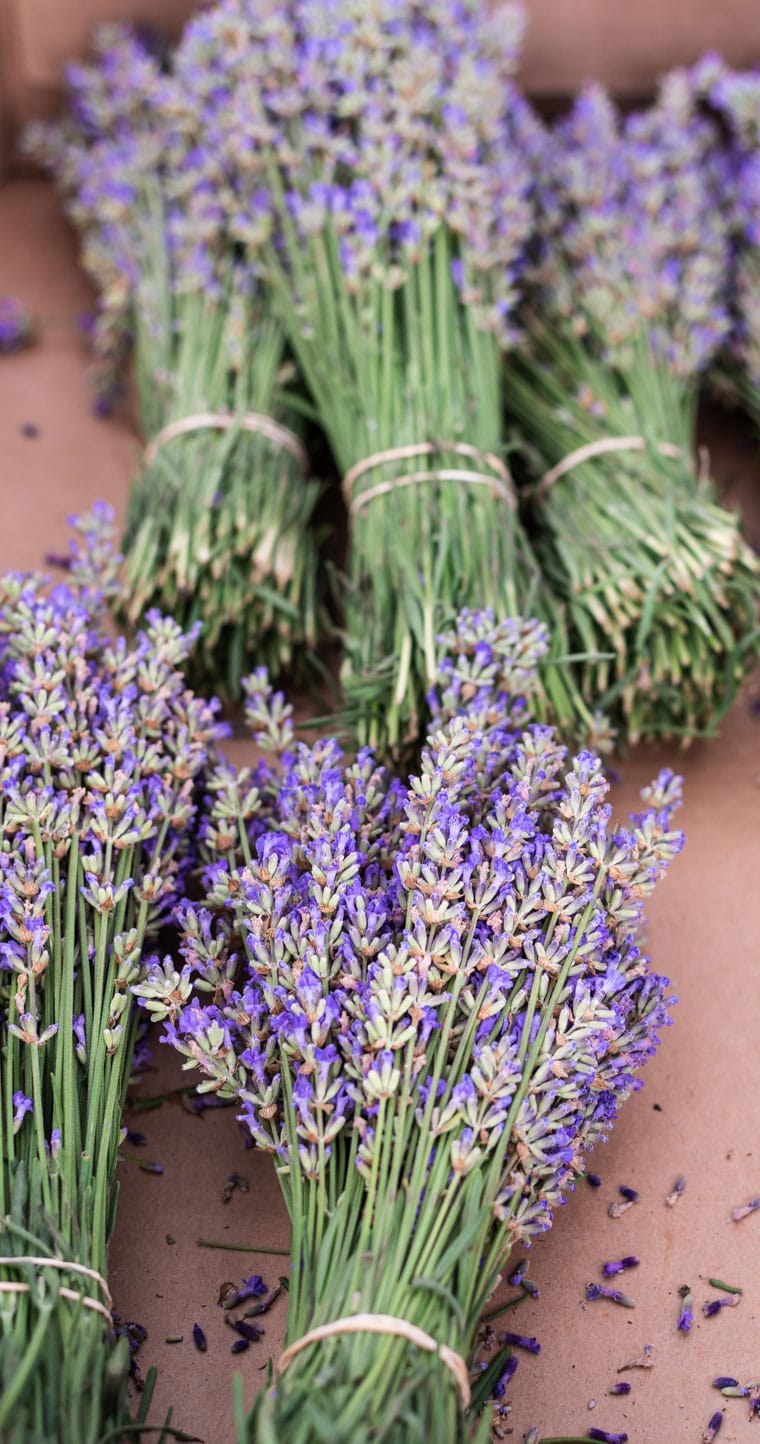
Scope it out
First, take a walk through the entire market. It may be tempting to buy something, but refraining initially can pay off. You may find a better deal right next door.
Think about what items you saw, and picture how you'll build your meals with them.
Make sure you give yourself enough time to browse around. It’s not fun to have to rush through the market, especially when it’s busy.
Pro-tip: I usually take a walk through the market to see what's available, then I sit down, enjoy the weather and plan my meals based on what's available.
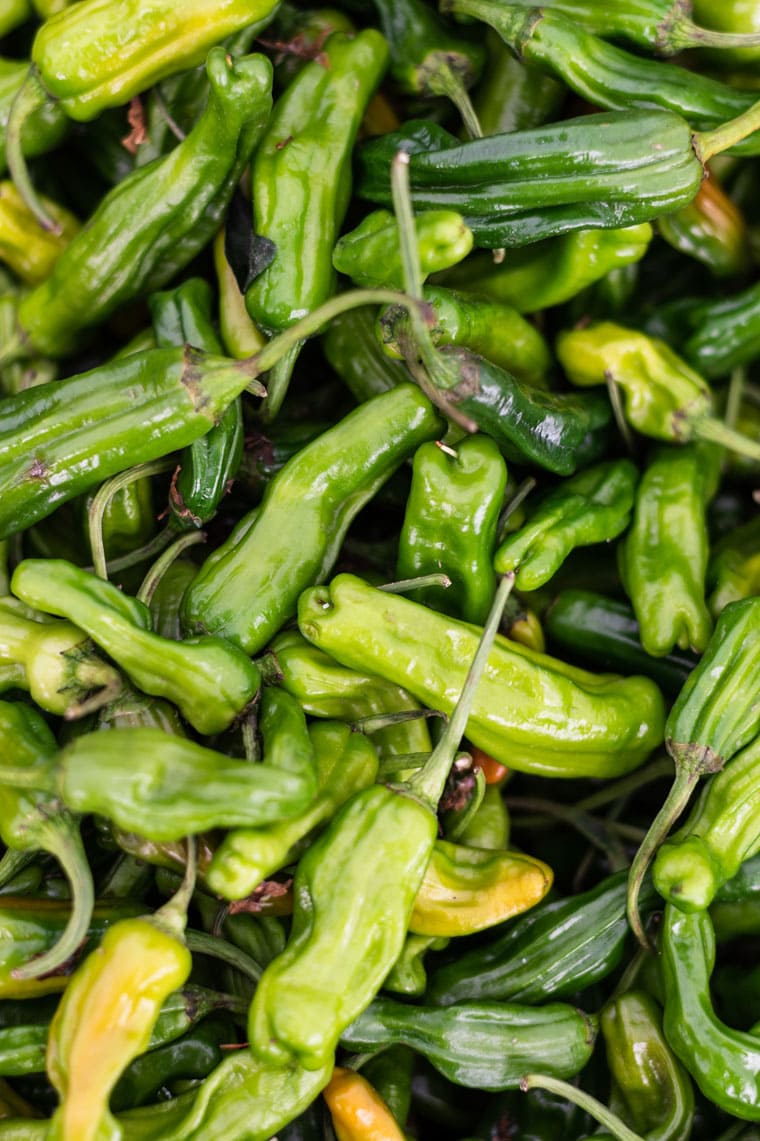
Consider non-organic
There are pros and cons to organically-grown food, but don't limit yourself to only organic produce. Some farmers may not have the organic credentials, but may have equally sustainable practices. Just go talk to them and find out for yourself!
Think whole produce - at the farmers market, carrots and beets generally come with their greens and dirt. Don’t be afraid of a little dirt or a couple critters. Just be sure to wash your goods before eating.
Should I haggle? How to save.
In general, haggling is a no-no as prices are often set by consensus among the growers. And remember that it takes time and effort to grow and harvest each item so consider that when you're looking at the price.
This is how farmers make a living and growing food in a sustainable way that pays the farmers and workers a sustainable wage may cost a bit more, but is well worth it.
There are ways to save, however.
Get a quantity deal if you buy in bulk amounts. Farmers often give discounts when you buy several pounds. Depending on the market and farmer, you may be able to call ahead to secure your goods.
Embrace the ugly. Imperfect produce is just as tasty and edible as the picture-perfect pieces. Look for ‘canning grade’ or ‘visually distressed’ fruit for deeper discounts.
Freezing and canning are great ways to preserve and enjoy that summer produce all year long.
Toward the end of the market, you also may be able to find some pretty great deals as venders often try to sell their remaining produce before the market ends for the day.
Lastly, many markets take SNAP benefits. Check with your local market to see if you can use your SNAP dollars there.
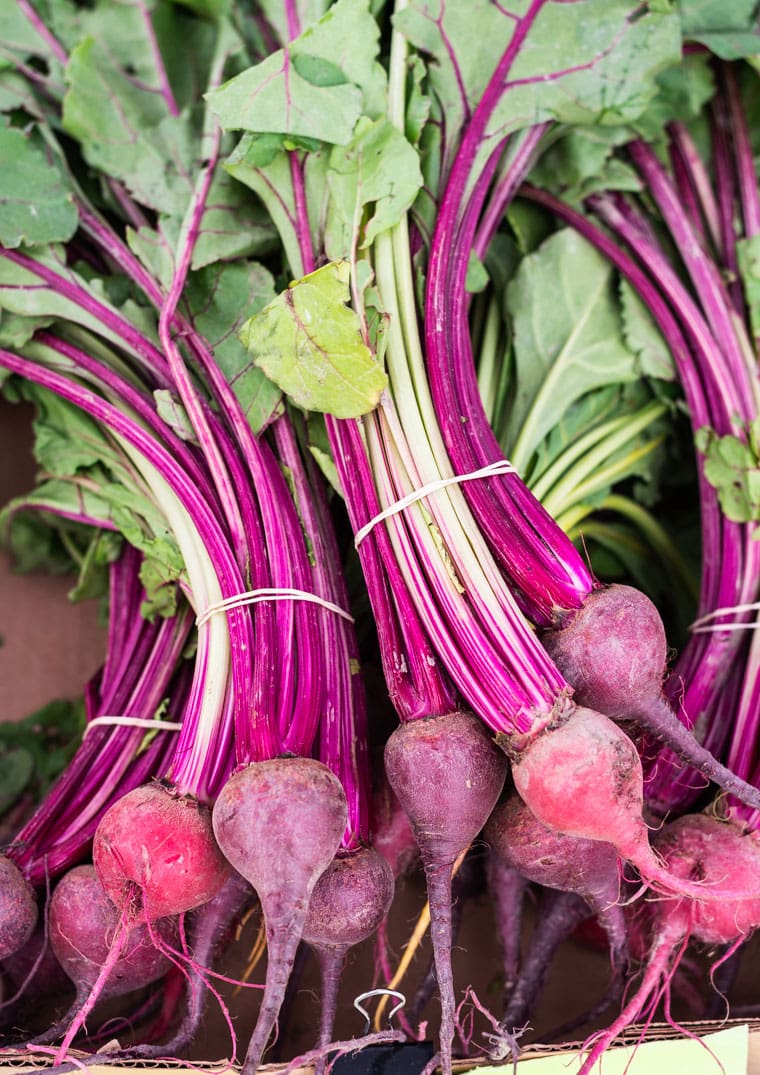
Go early or late
By going early, you’ll likely avoid the crowds and it also ensures you’ll have a plethora of items to choose from as vendors haven’t run out yet.
There are also advantages of going late - you can often get deals because the vendors want to sell their produce before the market ends.
Build a relationship with farm vendors
Talk to them, ask how they grow their food and what practices they use.
Most vendors will be happy to tell you all about their products, including how they are grown, their origins, what they taste like, and how to prepare them - especially if you see something you’ve never had - ask what it is and how to use it.
During the busiest times of the market (typically in the middle of the day), it may be difficult to talk with the farmers.
Generally, it's easier to have a conversation with the farmers either at the beginning or end of the market as they may not be as busy helping other customers.
But if you do have the opportunity to chat, do it! It's nice to put a face to the food that you put on the table each night.
Check out this National Farmers Market Directory to find your local farmers market.
Comment below and share your favorite farmers market shopping tips!
Disclaimer: Some of the links above are affiliate links. As an Amazon Associate, I earn from qualifying purchases. This means that should you purchase something through the link, The Crooked Carrot will receive a small commission. The item cost remains the same regardless of whether you purchase through our link or not.


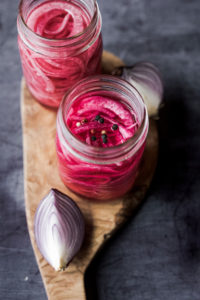
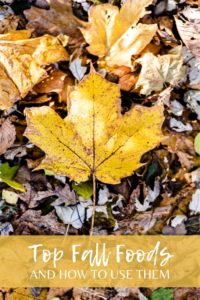
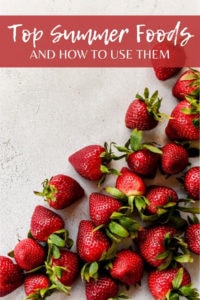
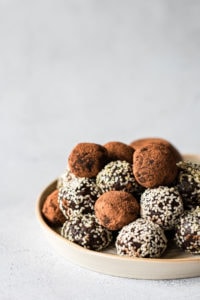
Leave a Reply